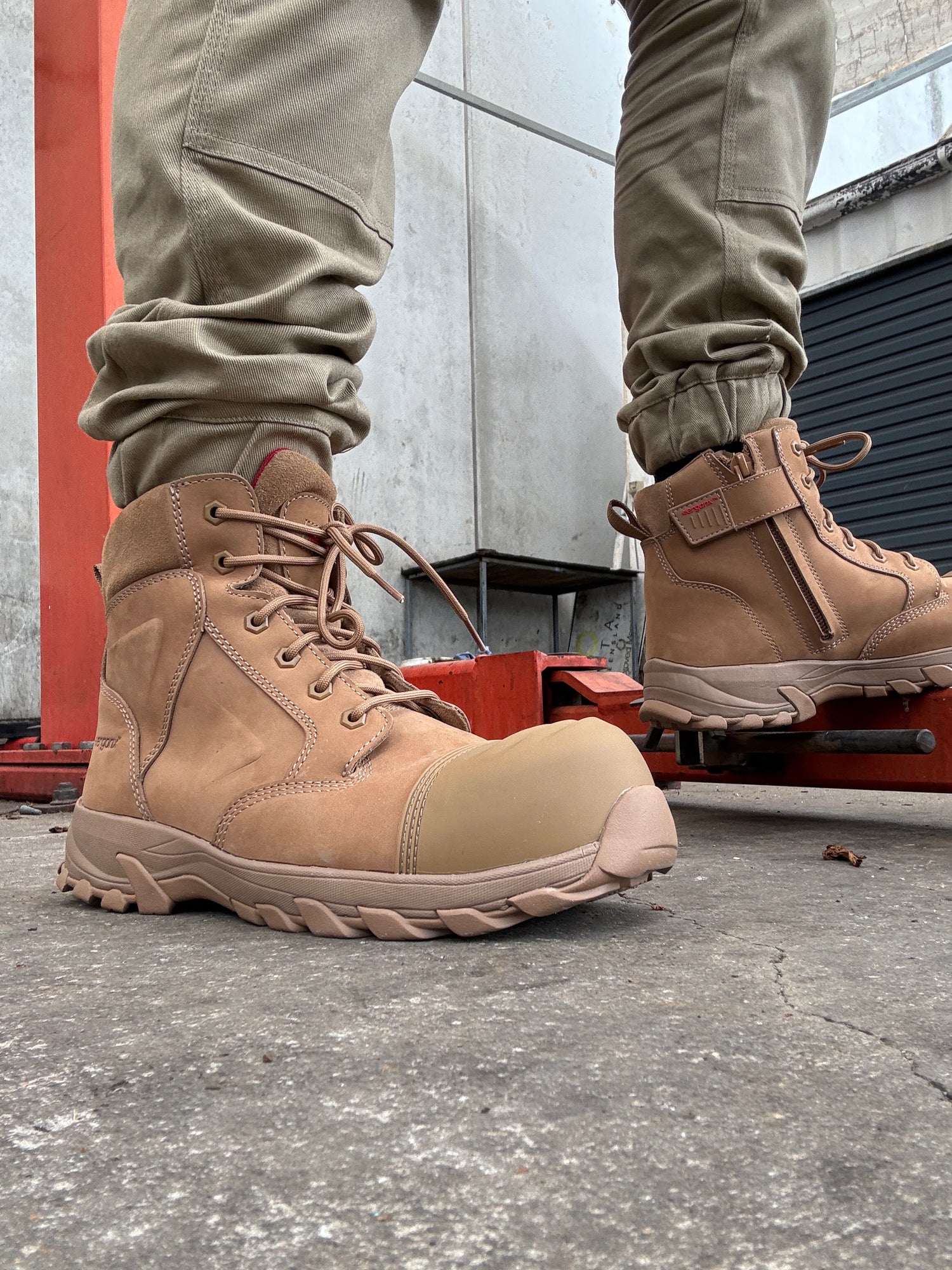HOME/ FOOT HEALTH BLOG / WHAT DOES FOOT PAIN MEAN
You wake up in the morning, ready to tackle the day ahead, only to be greeted by an unwelcome guest—foot pain. Sound familiar? Well, you're not alone.
It is often described as a nagging type of ache that can throw a wrench in your daily life and even the simplest tasks turn into a struggle. Whether it's a sharp twinge or a persistent ache that lingers throughout the day, foot pain has the power to slow us down.
If you've been suffering from foot pain, keep on reading. In this blog, we dive into some of the causes of foot pain and explore some of the most effective ways to alleviate it.

What are some common causes of foot pain?
When we talk about mechanical foot pain, we are referring to the kind of foot pain that is caused by issues related to foot structure, alignment, and muscle tension. This pain can manifest in different ways. Some people experience pain that is at its worst in the morning, while others have pain that worsens as the day goes on.
The root causes of mechanical foot pain often lie in insufficient foot support and overly tight muscles. When our feet lack the proper support, they are prone to rolling inwards (overpronation), causing the arches to collapse. To compensate for this misalignment, the ligaments, joints, and muscles of the feet have to work much harder to reposition the feet. This can lead to shin pain, calf pain, and, in some cases, overuse injury.
Ill fitting shoes are one of the main culprits behind foot pain. It's remarkable how much footwear can impact day-to-day comfort. While shoes, like heels, can be stylish, they force the feet into unnatural positions that shift the body's weight onto the forefoot and squish the toes. The natural alignment of the feet is disrupted and excessive pressure is placed on the balls of the feet. Raised heels also alter your gait, affecting the way you walk.

How to Relieve Foot Pain and Aches
Here are some practical steps you can take to prevent and alleviate foot pain.
Stretching Your Calf Muscles
Stretching is often underestimated but it can be a game-changer when it comes to finding relief for foot pain. Our feet, just like any other part of our body, benefit immensely from a good stretch. It helps to alleviate tension and improve your flexibility. By dedicating a few minutes each day, you're essentially giving your feet a massage and a chance to regain their natural range of motion.
Incorporating a simple routine that includes exercises like calf raises can go a long way. While it may not provide immediate comfort, stretching can aid in preventing future foot pain. When our muscles are flexible and loose, they are less likely to tighten up under strain. This is especially true for those who spend long hours on their feet.

Finding Good Arch Support
Supporting your feet is crucial to achieving good foot alignment. One effective tool used by healthcare professionals and foot care experts is orthotic insoles. These are prescribed shoe inserts designed to cushion and provide the right amount of arch support. Everyone's feet are different, and so, its best to consult a healthcare provider who can identify your specific foot needs and find the orthotic that's best suited for you.
Investing in a good pair of shoes is also important. We recommend looking for footwear that offers a combination of arch support and shock absorption. This will further help to prevent overpronation.

Additional Measures
Severe foot pain means you may need more than orthotic inserts and stretching. Over-the-counter pain relievers, such as ibuprofen, can provide temporary relief from discomfort. Icing your feet at the end of the day can also be used to reduce inflammation and soothe soreness.
Taking the Right Steps Towards Comfort
Remember, you should listen to your body. If your foot pain is worsening or persists, reach out to a healthcare professional such as a podiatrist. They are trained to assess, diagnose, and offer personalized treatment options tailored to your condition. Taking care of your feet is a long-term investment that will contribute to your overall well-being. So, put on a comfortable pair of shoes, stretch out those muscles, and take the right steps towards a pain-free future. Your feet will thank you for it.
If you have more questions about persistent foot pain, foot pain relief, and finding comfortable shoes, reach out to us at ergonx.com.au. You can also comment below. Our next blog may feature your question, along with a detailed answer!


